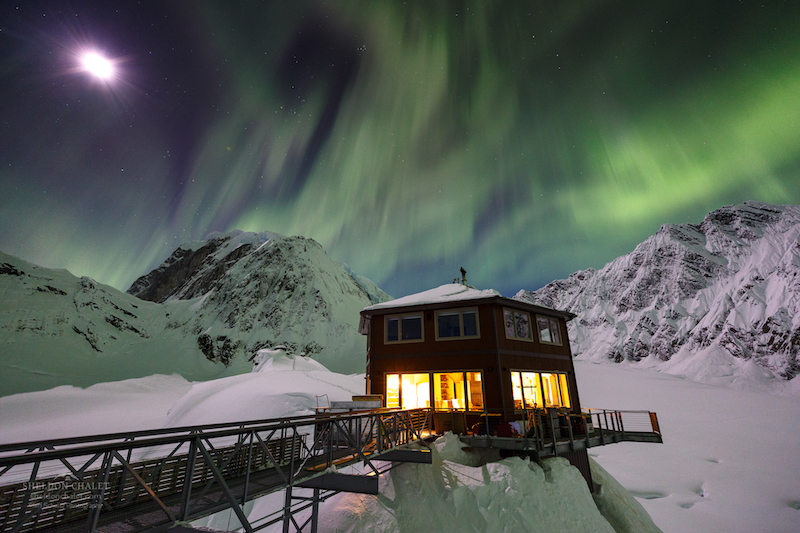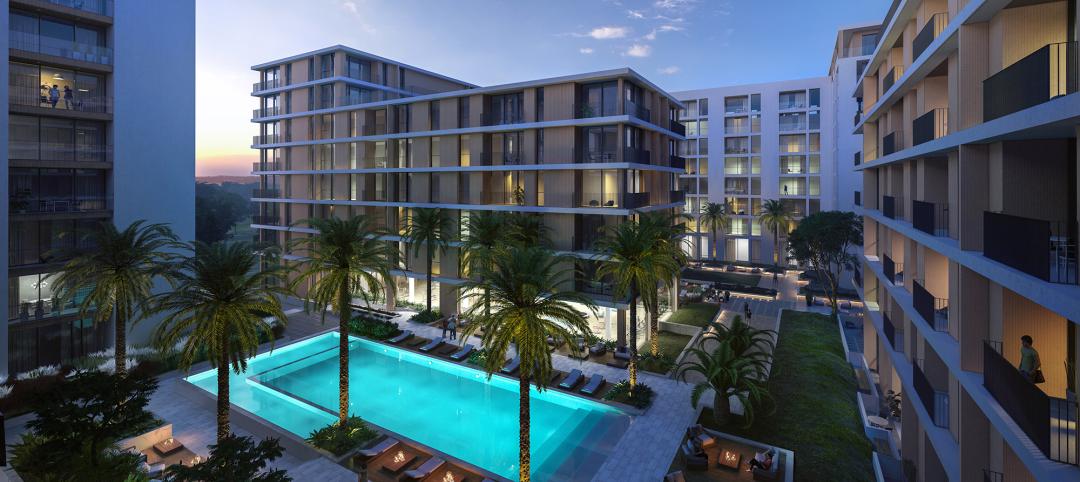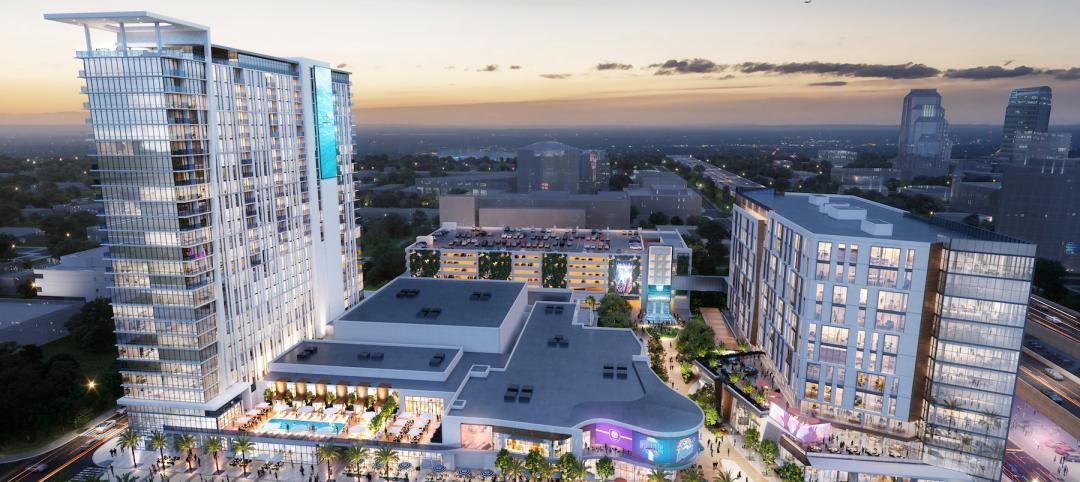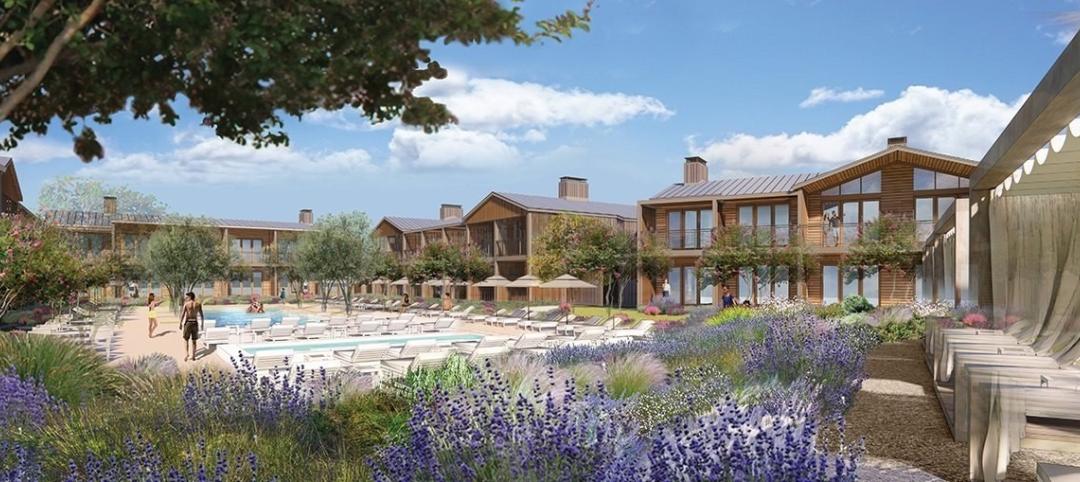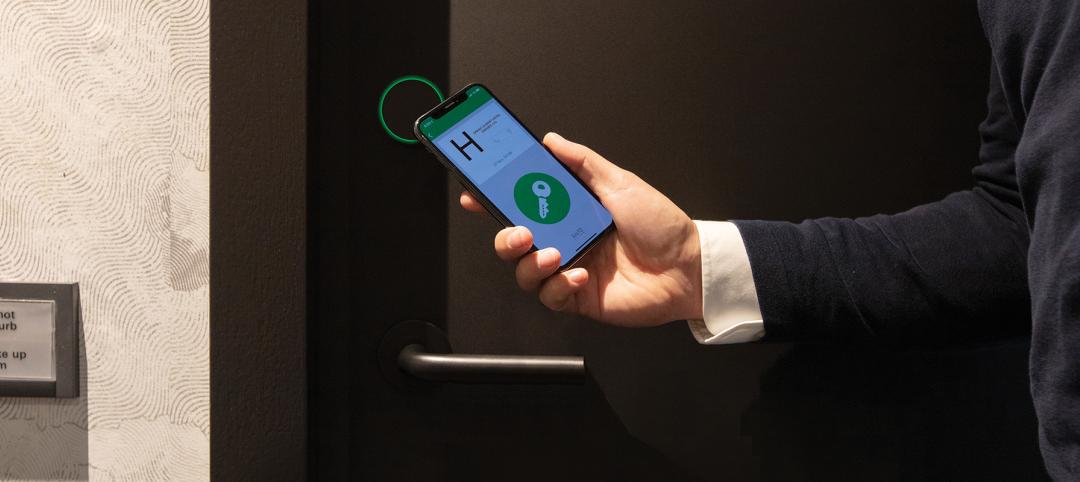Located 6,000 feet above sea level on a nunatak just 10 miles from the summit of the tallest mountain in North America, the Sheldon Chalet is Denali National Park’s first and only luxury hotel. The chalet is located in the Don Sheldon Amphitheater, a natural valley carved by the ice of the Ruth Glacier and named after a famous Alaskan bush pilot and the man behind the Sheldon Chalet.
Sheldon received a patent to start building the Chalet back in the 1970s, but the plans were put on hold due to his sudden death. Decades later, Don’s son, Robert, has now finally completed the project.

The chalet is anchored deep into the granite, iron, and titanium of the nunatak and is equipped with a runoff-powered water supply, electricity, and a Finnish fireplace in a common room that doubles as a high-efficiency, clean-combustion heating system.
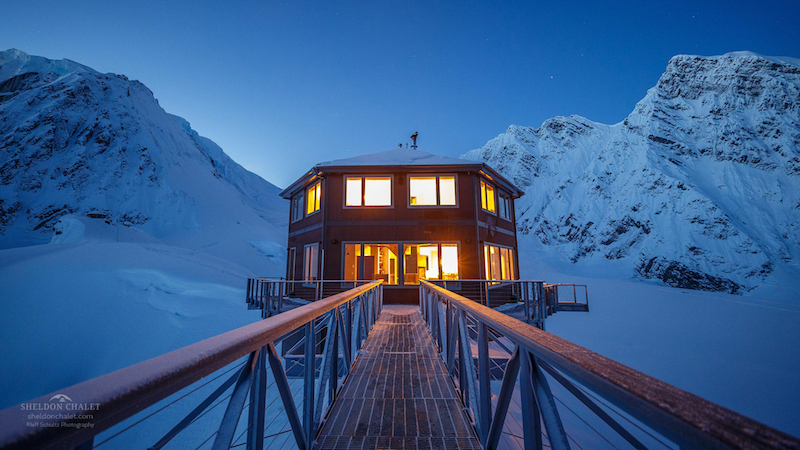
Inaccessible by car, guests must take an hour-long helicopter ride to arrive at the five-bedroom chalet. Each room can sleep two guests and is arranged around the central Commons. Amenities include a sauna, viewing station, observation deck, kitchen, and dining area. Marvin windows were installed to give guests 360-degree views of the surrounding peaks. The windows were designed to withstand winds of up to 200 miles per hour.
Outside of the hotel, guests can go snowshoeing and glacier trekking and visit remote hot springs and a Mastodon bone yard. Rates for the luxury experience start at $2,300 per person, per night. BEK of Alaska built the Chalet.
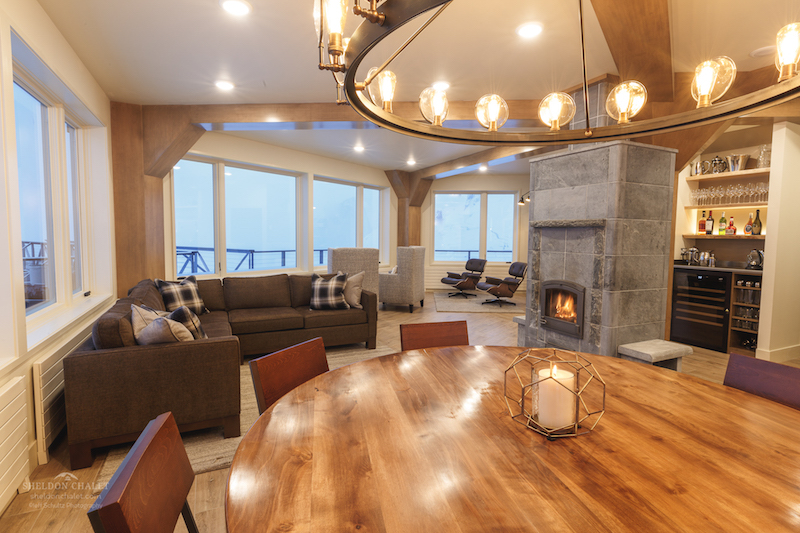
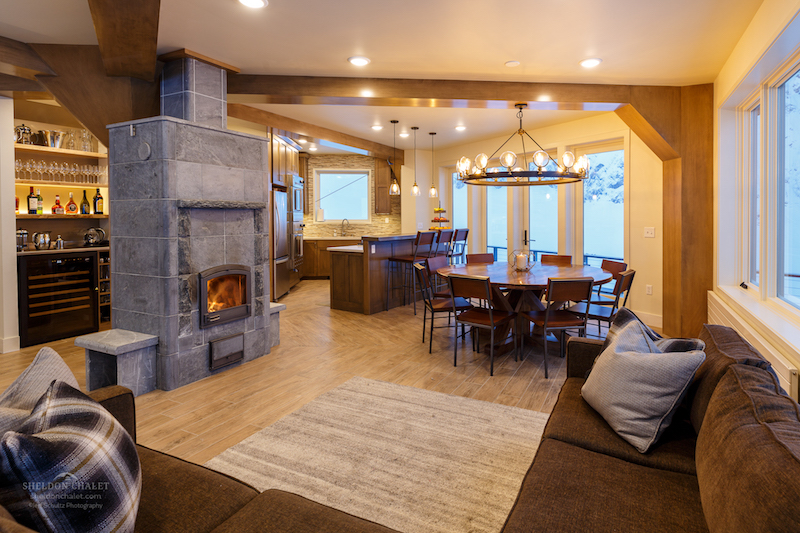
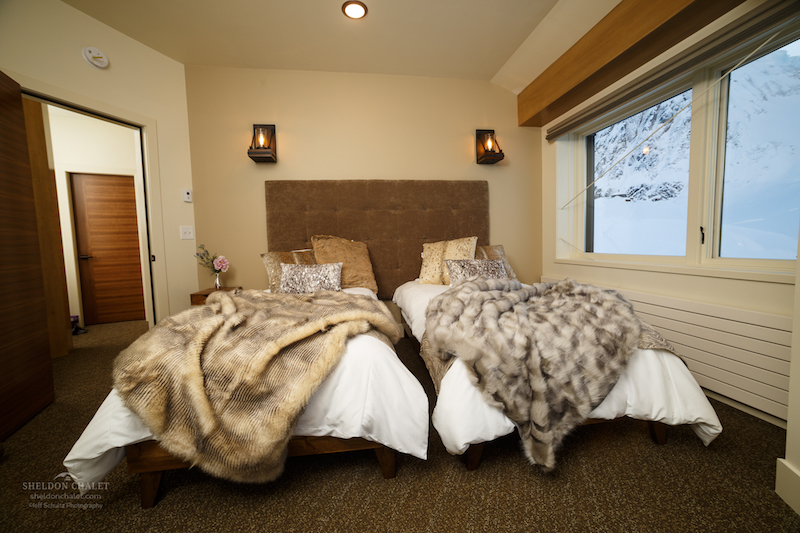
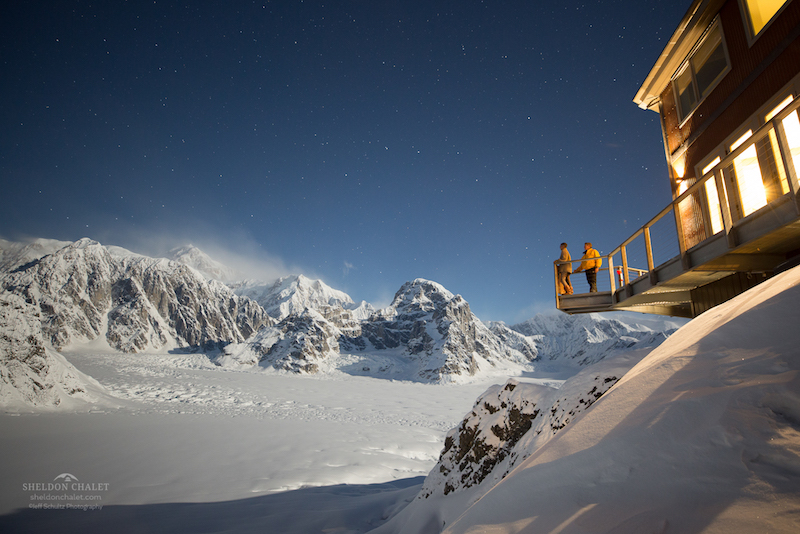
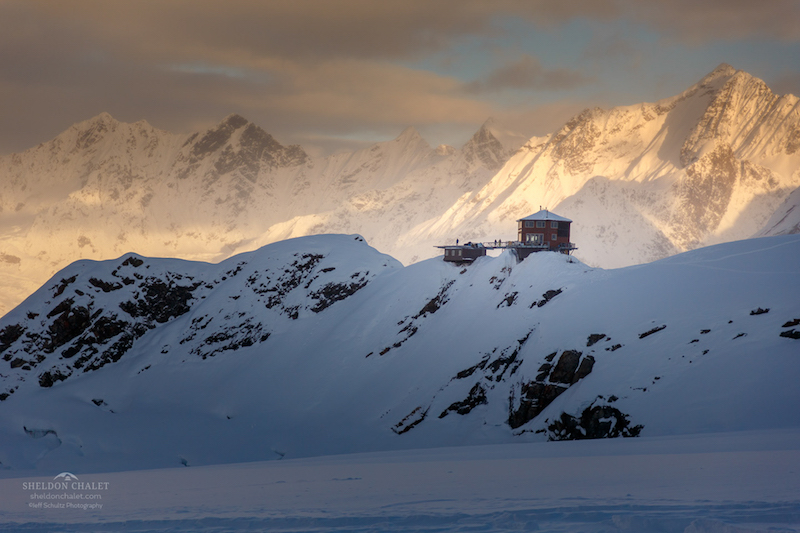
Related Stories
Smart Buildings | Jul 25, 2024
A Swiss startup devises an intelligent photovoltaic façade that tracks and moves with the sun
Zurich Soft Robotics says Solskin can reduce building energy consumption by up to 80% while producing up to 40% more electricity than comparable façade systems.
Adaptive Reuse | Jun 13, 2024
4 ways to transform old buildings into modern assets
As cities grow, their office inventories remain largely stagnant. Yet despite changes to the market—including the impact of hybrid work—opportunities still exist. Enter: “Midlife Metamorphosis.”
Adaptive Reuse | May 9, 2024
Hotels now account for over one-third of adaptive reuse projects
For the first time ever, hotel to apartment conversion projects have overtaken office-to-residential conversions.
Adaptive Reuse | Apr 29, 2024
6 characteristics of a successful adaptive reuse conversion
In the continuous battle against housing shortages and the surplus of vacant buildings, developers are turning their attention to the viability of adaptive reuse for their properties.
Hotel Facilities | Apr 24, 2024
The U.S. hotel construction market sees record highs in the first quarter of 2024
As seen in the Q1 2024 U.S. Hotel Construction Pipeline Trend Report from Lodging Econometrics (LE), at the end of the first quarter, there are 6,065 projects with 702,990 rooms in the pipeline. This new all-time high represents a 9% year-over-year (YOY) increase in projects and a 7% YOY increase in rooms compared to last year.
Mixed-Use | Apr 23, 2024
A sports entertainment district is approved for downtown Orlando
This $500 million mixed-use development will take up nearly nine blocks.
Hotel Facilities | Apr 17, 2024
Will the surge in hotel construction carry resorts with it?
The resort corner of the hospitality sector has been a bit slower to expand than the whole for the past few years. But don’t tell that to Bill Wilhelm, President of R.D. Olson Construction.
Sponsored | Hotel Facilities | Apr 8, 2024
The Rise of Mobile Keys in Hospitality
Unlocking the future of hospitality—mobile keys are transforming the guest experience and streamlining hotel ops.
Adaptive Reuse | Mar 30, 2024
Hotel vs. office: Different challenges in commercial to residential conversions
In the midst of a national housing shortage, developers are examining the viability of commercial to residential conversions as a solution to both problems.
Adaptive Reuse | Mar 26, 2024
Adaptive Reuse Scorecard released to help developers assess project viability
Lamar Johnson Collaborative announced the debut of the firm’s Adaptive Reuse Scorecard, a proprietary methodology to quickly analyze the viability of converting buildings to other uses.


